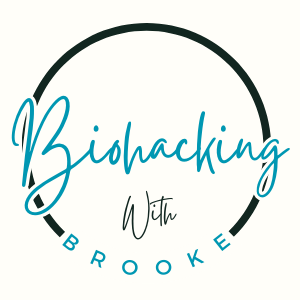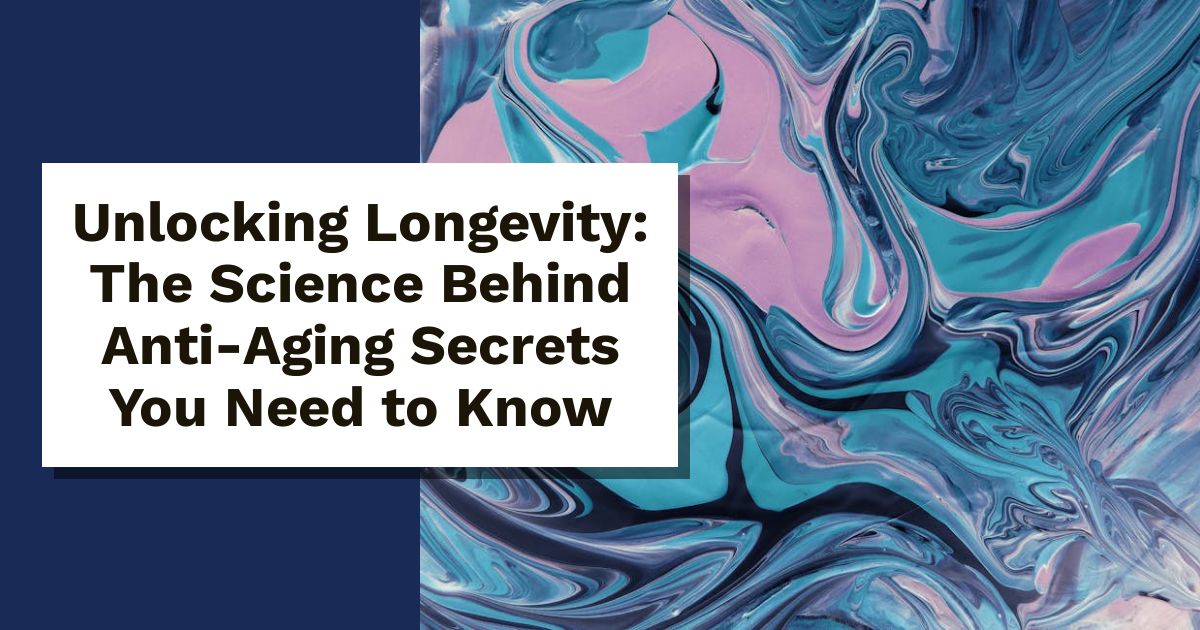Longevity and anti-aging aren’t just buzzwords; they’re key to living our best lives. Who doesn’t want to feel youthful and energetic, no matter their age?
This post dives into the science that reveals how we can slow down aging. You’ll learn about the latest research, simple lifestyle changes, and effective strategies that can help you boost your health and vitality.
Tackling the challenges of aging is more relevant than ever. As we gain insights into how our bodies function, we can take steps to enhance our well-being.
Get ready to uncover practical tips that could change your daily routine, leading to a longer, healthier life. Let’s explore the fascinating world of longevity together!
What is Longevity?
Longevity is all about living longer while maintaining quality of life. It’s not just about the number of candles on your birthday cake; it’s about the enjoyment of life in those years. Understanding longevity involves exploring how our bodies age and what that means for our day-to-day health.
The Basics of Aging
Aging is a natural process that every living being experiences. It’s a complex blend of biological changes that affect how our bodies function. As we age, our cells undergo changes, leading to a gradual decline in bodily functions. This can manifest as:
- Decreased muscle mass: Muscles lose strength and endurance, making activities feel more challenging.
- Joint wear and tear: Cartilage can break down, leading to stiffness and discomfort.
- Hormonal changes: Hormone levels shift, influencing metabolism and energy levels.
- Cognitive decline: Memory and processing speed can decline, affecting daily tasks.
These natural changes can increase the risk of chronic diseases like heart disease or diabetes. For more insights on how aging works, check out this article on normal aging.
Lifespan vs. Healthspan
Lifespan refers to the total number of years one lives, while healthspan is the length of time in which one remains healthy and active. It’s possible to live a long life but not necessarily a healthy one. Think of it this way: a car can run for a long time, but if it’s not well-maintained, it won’t perform optimally.
Here’s a quick breakdown:
- Lifespan: Total years lived (e.g., reaching 90 years).
- Healthspan: Years lived without serious health issues (e.g., being active and healthy until 85).
To put it into perspective, you might live to be 90, but your goal should be to maximize your healthspan so you can enjoy life to its fullest during those years. Understanding this difference can guide lifestyle choices that promote a longer, healthier life. For a deeper dive into the terms relating to longevity, visit this resource.
The Science of Aging
Aging is more than just the process of getting older. It’s a complex interplay between our cells, genes, and environmental factors. Let’s break down some key components of how we age, including the roles of cellular changes, our genetic makeup, oxidative stress, and inflammation.
Cellular Aging
Cells are the building blocks of life, but they don’t last forever. As cells divide, the protective caps on their DNA called telomeres shorten. Every time a cell divides, a bit of the telomere is lost. When telomeres become too short, it leads to cellular aging, ultimately causing the cell to stop functioning properly or die. This process is tied to aging because short telomeres have been linked to many age-related diseases.
Interestingly, scientists are studying ways to potentially extend telomeres or slow their shortening. Research suggests that maintaining telomere length could play a role in longevity, although the connection isn’t fully understood yet. For more on telomeres, you can explore this article on telomere dysfunction.
Genetics and Longevity
Ever wonder why some people seem to age slower? Genetics plays a significant role in how we age and how long we live. Studies have shown that certain genetic traits can influence longevity, impacting conditions like heart disease and cancer.
Two genes, APOE and FOXO3A, are particularly noteworthy. They help protect against some diseases and have been linked to longer life spans overall. However, it’s essential to recognize that genetics isn’t the only factor. Environmental influences and lifestyle choices also play vital roles. Curious to learn more? Check out this overview on longevity and genetics.
Oxidative Stress and Aging
Oxidative stress occurs when there’s an imbalance between free radicals and antioxidants in your body. Free radicals can damage cells, leading to aging and several diseases. This damage accumulates over time, contributing to age-related conditions like heart disease and neurodegenerative disorders.
Antioxidants help neutralize free radicals, preventing some of this damage. Eating a diet rich in fruits and vegetables can boost your antioxidant intake, supporting a healthier aging process. Want to dive deeper? Read more about oxidative stress and its impact on aging.
Inflammation and Longevity
Chronic inflammation is like a slow burn in the body. It’s a normal part of aging, but when it becomes persistent, it can lead to severe health issues. Conditions known as “inflammaging” can increase the risk of diseases like Alzheimer’s and diabetes.
Inflammation can naturally increase as you age, but lifestyle factors like diet, exercise, and stress management can make a difference. Being proactive in reducing inflammation can contribute to healthier aging. For further insights, check out this article on inflammation and aging.
Embracing the science of aging can help guide smarter lifestyle choices, paving the way to a healthier future. Understanding these elements allows us to take informed steps towards longevity and vitality.
Anti-Aging Strategies
As we seek the fountain of youth, certain strategies can help slow down the aging process. Incorporating these approaches into your life isn’t just a trend; they can transform your day-to-day experience and enhance longevity. Let’s break down some key strategies.
Nutrition for Longevity
What we eat plays a crucial role in how we age. Nutrients act as fuel for our bodies, and certain diets have been linked to longer, healthier lives. The Mediterranean diet, rich in fruits, vegetables, whole grains, and healthy fats, is known for its benefits.
Key nutrients include:
- Antioxidants: Found in berries, nuts, and leafy greens, they combat oxidative stress and promote cell health.
- Omega-3 Fatty Acids: Present in fatty fish and walnuts, they support brain function and reduce inflammation.
- Fiber: Found in whole grains and legumes, fiber aids digestion and helps maintain a healthy weight.
For meal options focused on longevity, consider exploring Nutrition for Longevity.
Exercise and Aging
Moving your body works wonders. Regular exercise doesn’t just help you shed a few pounds; it can slow down aging too. Engaging in physical activity improves circulation, boosts your mood, and strengthens muscles, which declines as we age.
Different types of exercise to consider include:
- Strength Training: Lifts help maintain muscle mass and bone density.
- Cardiovascular Exercise: Activities like walking, running, or cycling promote heart health.
- Flexibility & Balance: Yoga or Pilates enhances flexibility and reduces fall risk.
Making exercise a regular part of your day can add years to your life. Curious about it? Check out how exercise helps with aging.
Sleep and Recovery
Sleep, the unsung hero of longevity, deserves more attention. Quality sleep allows your body to repair and rejuvenate. Research shows that poor sleep can lead to a shorter lifespan and chronic health problems.
Aim for these sleep-friendly practices:
- Consistency: Go to bed and wake up at the same time every day.
- Comfort: Create a calm sleeping environment—dark, cool, and quiet.
- Limit Screens: Reduce exposure to screens an hour before bed.
Getting enough quality sleep can improve your life in significant ways. For more insight, see how quality sleep impacts your lifespan.
Mental Health and Aging
When it comes to living longer, keeping a positive mindset is key. Mental health affects both your emotional and physical well-being. Stress, anxiety, and depression can contribute to health decline as we age.
To boost your mental health, consider:
- Social Connections: Regularly connect with friends and family.
- Mindfulness Practices: Try meditation or deep breathing exercises.
- Pursuing Hobbies: Engage in activities that bring joy and fulfillment.
Fostering a healthy mind can significantly influence your longevity. For more on how mental health impacts aging, visit older adults and mental health.
Biohacking for Longevity
Biohacking offers exciting possibilities for extending life and enhancing well-being. Let’s explore how supplementation and technology play pivotal roles in promoting longevity.
Supplementation for Aging
When seeking to boost longevity, many turn to supplements. Several products are rumored to help us age better, but which ones really stand out? Here’s a look at popular choices:
- Nicotinamide Mononucleotide (NMN): Known for its role in boosting NAD+ levels, NMN may improve energy metabolism and enhance cell repair.
- Resveratrol: Often found in red wine, this compound is praised for its antioxidant properties and potential benefits for cardiovascular health.
- Vitamin D: Essential for bone health and immune function, Vitamin D is crucial for aging well.
- Omega-3 Fatty Acids: Found in fish oil, these fats are linked to heart health and reduced inflammation.
- Senolytics: A new class of drugs targeting senescent cells. They may boost overall health by eliminating damaged cells from the body.
Many enthusiasts swear by these supplements, but it’s wise to consult with a healthcare provider before starting any regime. For a comprehensive rundown of these supplements, check out this resource on Best Anti-Aging Supplements According to Science.
Tech and Aging
In this tech-savvy world, gadgets can also help track health and promote longevity. Ready to embrace the future? Here’s how technology is changing the game:
- Wearables: Smartwatches monitor heart rates, activity levels, and even sleep patterns. They provide valuable data about your health, nudging you toward healthier choices. Curious about how wearables enhance longevity? Dive into this article about smartwatches and health.
- Mobile Apps: Health-tracking apps can help you log workouts, meals, and overall wellness. Some even offer personalized recommendations based on your data.
- AI Health Managers: Tools like Technogym Check Up use AI to analyze your health metrics. They tailor fitness programs to your needs, ensuring you stay on track. Learn more about this innovative technology here.
- Telehealth and Virtual Consultations: These services enable easy access to healthcare professionals. Monitor your health remotely while receiving personalized advice without the hassle of travel.
Technology isn’t just a convenience; it can actively support your journey toward longevity. Together with smart supplementation, it helps create a healthier you. For further insights on health tech, explore this article about Unlocking Healthspan with Technology.
Future of Longevity Research
The future of longevity research is bursting with potential. Scientists aim to unlock the secrets of aging, revealing new treatments that can change how we think about growing old. From innovative therapies to pressing ethical concerns, the landscape is evolving rapidly.
Innovative Therapies
As the field of longevity research progresses, groundbreaking therapies are emerging. Why settle for traditional aging solutions when the future holds exciting possibilities? Here are a few innovative treatments gaining momentum:
- Senotherapy: This approach targets senescent cells, which contribute to aging. By eliminating these damaged cells, researchers aim to improve health and lifespan. Check out details on the potential of senotherapy.
- Metabolic Manipulation: By adjusting metabolic pathways, scientists hope to promote better cellular health. Techniques like caloric restriction have shown promise in extending lifespan in animal studies.
- Advanced Skin Treatments: Technologies like LED therapy are on the rise, showcasing how light can rejuvenate skin and combat signs of aging. For a look at the latest options, visit this overview of innovative skin treatments.
- Stem Cell Therapy: Harnessing stem cells could revolutionize how we regenerate damaged tissues. These cells can adapt and repair, offering hope for reversing age-related decline.
- Genetic Editing: With technologies like CRISPR, modifying genes related to aging may become a reality. Imagine a future where we can edit out age-related ailments!
These therapies represent just a glimpse of what the future may hold. As research advances, expect even more breakthroughs that could reshape our understanding of aging.
Ethical Considerations
With promising advancements come ethical dilemmas. The quest for longevity raises important questions about what it means to live a long life. Consider these ethical concerns:
- Access and Inequality: If anti-aging treatments become available, who gets access? Will only the wealthy benefit? These questions urge us to think about fairness in health care.
- Quality of Life vs. Quantity: Is it ethical to prolong life if the quality diminishes? The goal should be to enhance healthspan, not just lifespan. Explore the ethical dimensions in this Pew Research article.
- Natural vs. Unnatural: Some argue that extending life through technology is unnatural. This concern raises questions about our relationship with aging and what it means to be human. Read more about these arguments in the AMA Journal of Ethics.
- Societal Impacts: An aging population could shift societal structures. From workforce dynamics to pension systems, how will longevity research affect our broader communities?
- Moral Implications: As some seek radical life extension, others worry about potential overpopulation and its consequences. It’s essential to weigh these concerns against the backdrop of human advancement.
As longevity research continues to evolve, balancing innovation with ethical responsibility will remain key. Engaging in these discussions will help guide future research and its implications for society.
Conclusion
Understanding the science of longevity and anti-aging opens doors to a healthier lifestyle. Key strategies like nutritious eating, regular exercise, quality sleep, and mental wellness can significantly enhance your healthspan.
Adopt these habits to help your body age gracefully. Think of them as building blocks to a longer, more enjoyable life.
What new changes will you make today to support your journey?
Brooke is a rock-climbing 🧗♀️, tennis-playing 🎾, biohacking 🧬 bookworm 📚 on a mission to unlock the secrets of health, longevity, and living life to the fullest 🌟. When she’s not scaling cliffs, hitting the courts, or testing out the latest hacks, you’ll find her nose in a book or adventuring with her four-legged best friend 🐕 by her side. With a knack for turning science into simple, actionable tips, Brooke’s writing is your guide to hacking your biology and living your best, most vibrant life!


